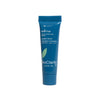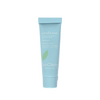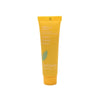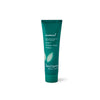Is Acne Genetic?
By Abby Vinas
Causes of Acne
•
0 Comments

Studies are done nearly every year to determine the main causes of acne. Is it what we eat that matters most? The products we use? Or could our skin situations be predetermined by another factor—genetics? The answers, while unclear, show that a number of factors, including certain genetic markers, can influence the severity of the acne you experience throughout your life.
Perhaps you were looking through some old photo albums and found pictures of your parents around your age— covered in pimples and blemishes. Does this automatically mean your skin is doomed to the same break-out-ridden fate? Multiple studies have been done in regards to the catalyst of acne. In a huge study that took over hundreds of acne patients and then compared them to those whom have never experienced acne, they found that those with immediate relatives who had acne were four times as likely to have it as those without. Another study was done between identical and fraternal twins in relation to the predisposition of acne, and the study concluded that over 80% of the acne cases found were explained by genes.
Unfortunately, as with many skin care questions, whether or not your genetics are the cause of your acne isn’t that simple to deduce. While certain genes can factor into the amount and severity of the acne you’ll face, genetics are a greater indicator of your skin type. While it’s true that some skin types are more prone to breakouts, especially excessively dry or oily skin types, are more likely to have severe, hard to manage acne. So while the question of, “If my mom had acne, will I have acne?” is certainly worth exploring, the real question should be, “My mom has oily skin. Do I have oily skin too?”
Despite the odds of severe acne being worse for those who have the predisposition in their genes, we also must take lifestyle and environment into consideration. For one, many food groups and diets have been shown to contribute to acne. Some sports that require hats or helmets to be worn while you sweat can definitely contribute to clogged pores and breakouts, especially around the hairline. Swimmers can sometimes experience excessive acne due to the drying effect of chlorine. If your parents participated in these types of sports and experienced their own skin care woes, there’s a high probability that you may experience something similar.
None of this is to say you need to give up dairy or quit your favorite sport. Quite the contrary! At a scientific level, acne genes basically put you at higher risk. That’s it. There’s no guarantee that you’ll have it, just a higher chance you might. These genes simply affect the way your skin reacts to internal and external factors and with acne, that knowledge is half the battle. Your skin type is the number one determining factor of how your acne will present and exactly what you can do to help alleviate your symptoms.
If you have a parent who suffered or suffers from acne, the first thing you’ll want to do is consult a dermatologist and learn what your skin type is. If they find your skin to be prone to breakouts and inflammation, they’ll give you an in-depth analysis for how best to treat acne for your specific skin type.
Next, now that you know your skin type, begin a regimen that helps to alleviate your acne symptoms. Wash your face twice a day with an effective acne fighter like bioClarity and be sure to moisturize after.
Keep track of any breakouts that may occur by beginning a skin-care journal that details the factors that may be contributing to your blemishes. Be sure to include external factors, as well as internal. Are you getting enough rest? Are you properly hydrated? Have your stress levels increased?
Once you begin to notice patterns, it’s much easier to get your symptoms under control by eliminating those influences. While you’re on the subject of genetics, don’t hesitate to ask your parent or parents how they handled or handle a breakout. As we now know, genetics do play a role in the health of your skin and a method that works well for them could easily work well for you.
Clearer skin in as little as two weeks.
3-step ritual with nutrient rich botanicals and the power of Floralux® to treat, soothe, and calm skin.
Learn MoreThere is no magic catch-all cure for acne. While there are hundreds of over-the-counter and prescription remedies available today, the most tried and true method is time and diligence. It’s true that many people grow out of their acne condition as their hormones level out and their skin normalizes. The most important thing you can do is to treat your symptoms and go on living your life. Time heals all wounds— even pimples and blackheads.
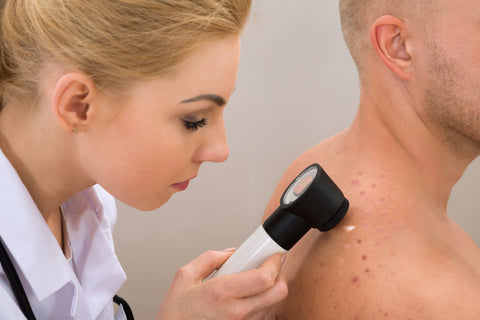
Your genetics do play a role in the amount and severity of the acne you will experience. However, this is not the deciding factor in the future of your skin. A predisposition to acne does not mean you will be plagued with blemishes for the rest of your days in the same way that not having a genetic marker for acne doesn’t mean you’ll never experience a pimple. If you are experiencing bad acne, it’s important that you accept your condition as a fleeting part of your life. See a dermatologist regularly to get an update on your condition and find out if you’re in need of a stronger solution to your breakouts. Take the steps to mitigate your symptoms; eat healthy, stay hydrated, and get plenty of sleep. Your lifestyle will play a bigger role in your acne story than any other element.
Finally, take some time to relax and focus on other parts of your life. Letting your breakouts rule you can lead to low self-esteem, a feeling of dread, and may even worsen acne by way of compounding stress. In the end, genetics are just another factor in your overall skin health. If you stay on top of your skin-care routine, they won’t matter either way.

Abby Vinas
Abby Vinas has long been an active member of the holistic health community, advocating in favor of its benefits to both our physical and emotional well-being. Her commitment to leading a healthy lifestyle has made her an authority on self-care practices. Abby is passionate about fitness, nutrition, and proper skincare, and is also an avid lover of avocado toast and dog-petting.
